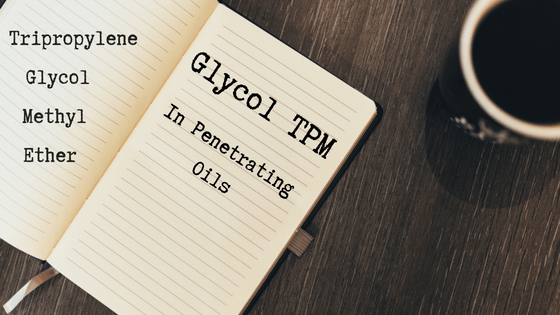What is Glycol TPM?
Tripropylene Glycol Methyl Ether, or Glycol TPM is a mixture of organic compounds that is often utilized in industrial or laboratory solvents for a variety of applications.
Glycol TPM is often used in applications that require low viscosity, coupling ability, high solvency, high dilution, and low evaporation rate.
Benefits of Glycol TPM
- Powerful solvency.
- Low evaporation rate.
- Low viscosity.
- High dilution rate.
- Coupling ability.
Glycol TPM And Penetrating Oils
Glycol TPM is a key ingredient in many products that consumers may know well including penetrating oils.
Penetrating oils are low-viscosity oils that are often made of volatile compounds, such as Glycol TPM.
Penetrating oils are applied by using the oil to coat mechanical parts that have rusted together.
Penetrating oils are ideal to remove rust from mechanical parts such as nuts and bolts, because they are able to access the narrow space between the threads of the parts.
This function is why the low viscosity of Glycol TPM is ideal for this application.
Penetrating oils are most often volatile compounds.
They should not be used as a general lubricant.
Penetrating oils can also be used to remove chewing gum, adhesive stickers, and to lessen the friction on stringed musical instrument.
Penetrating oils can be utilized for household repair tasks, as well as general gardening applications.
Industrial Applications
Glycol TPM is most often used as an industrial solvent, and a coupling agent in rust removers.
Tripropylene Glycol Methyl Ether is often utilized as a solvent in the creation of ink for ballpoint pens, felt-tip pens, printing ink, and livestock markers.
Consumer Applications
Glycol TPM is applied as a solvent and coupling agent in consumer and industrial rust remover, paint remover, and paint removers.
Glycol TPM is also present in consumer hard-surface cleaners.
Safety and Handling
When utilizing any volatile chemical you should carefully read the safety instructions provided with your product shipment:
- Glycol TPM is highly volatile and flammable.
- Store in a cool, dry area away from any ignition sources.
- Follow the SDS provided with your product to ensure optimal safety measures.
- Wear protective gloves, eyewear, and other equipment when handling Glycol TPM.
- Glycol TPM causes mild eye irritation and injury upon ingestion. It can potentially cause drowsiness or dizziness.
- Glycol TPM may create flammable or toxic gasses upon contact with alkali metals or nitrides.
- For optimal safety handle Glycol TPM with protective gloves and safety goggles in a well ventilated area with a self-contained breathing apparatus.
Purchase Glycol TPM here, or call (800)-563-1305 if you have any questions.















